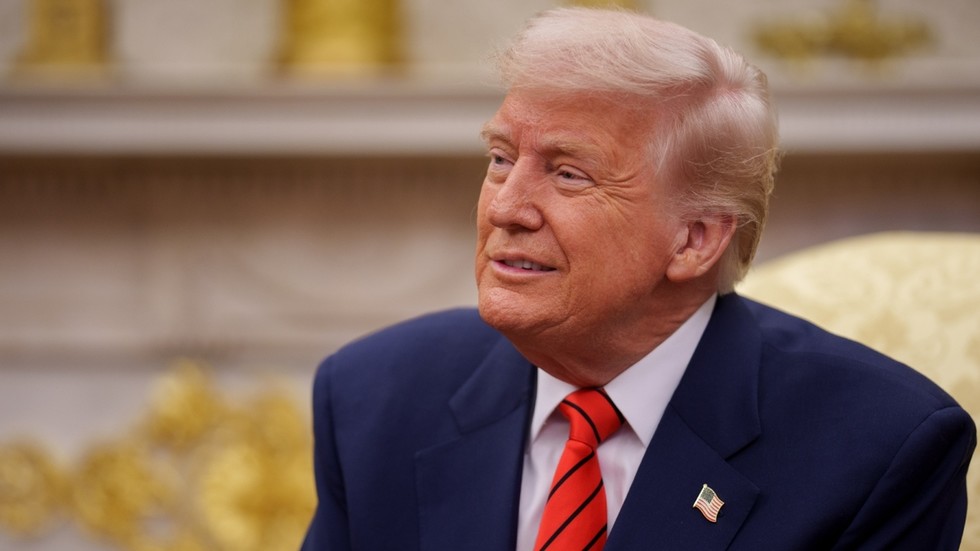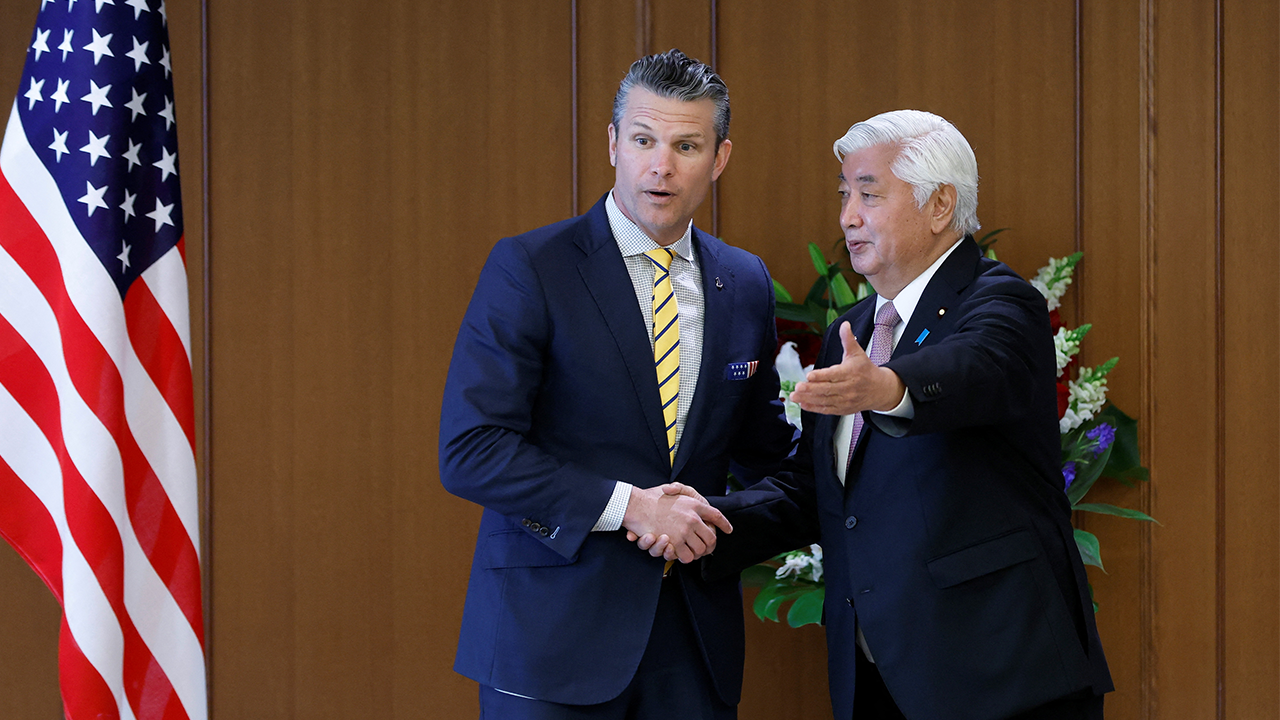Foreign Affairs
The military campaign against the Houthis likely won’t deter the group—and may boost its popularity.

Even the most intense, red-blooded MAGA supporter can’t avoid admitting the obvious: accidentally incorporating one of the Beltway’s most widely-known journalists into a group chat about military operations in Yemen was straight up idiotic. Secretary of Defense Pete Hegseth’s ferocious denials aside, the entire affair shouldn’t have happened. Indeed, if you had written a novel, publishers would object to the entire premise of such a scene because it was too unrealistic even for fiction. And yet, it happened.
The Trump administration is now under more scrutiny than usual. Even normally stalwart Republican lawmakers like John Cornyn of Texas are expressing misgivings. White House officials, including Press Secretary Karoline Leavitt and Director of National Intelligence Tulsi Gabbard are insisting no classified material was passed over this civilian messaging application (Goldberg, who should know, insists otherwise).
U.S. officials will attempt to gaslight the public and the media about the scandal and brush it off as one big misunderstanding. But eventually, Trump or one of his advisers will need to explain how somebody could have made such a stupid mistake and what, if anything, will be done to mitigate similar stupid mistakes in the future. National Security Advisor Mike Waltz, the man who inexplicably added the Atlantic’s Jeffrey Goldberg to the chat, is now facing a crisis of confidence, with some anonymous staffers suggesting he could lose his job over the entire episode (although President Trump reasserted support for Waltz a day after the story broke).
But amidst all the speculation about who is at fault and who will end up being the fall guy, Goldberg’s report included interesting tidbits about actual policy. While the vast majority of the group favored a U.S. airstrike campaign against the Houthis, one principal played the skeptic: Vice President J.D. Vance. One excerpt from the group chat is worth quoting in full:
At this point, a fascinating policy discussion commenced. The account labeled ‘JD Vance’ responded at 8:16: ‘Team, I am out for the day doing an economic event in Michigan. But I think we are making a mistake.’ (Vance was indeed in Michigan that day.) The Vance account goes on to state, ‘3 percent of US trade runs through the suez. 40 percent of European trade does. There is a real risk that the public doesn’t understand this or why it’s necessary. The strongest reason to do this is, as POTUS said, to send a message.’
The Vance account then goes on to make a noteworthy statement, considering that the vice president has not deviated publicly from Trump’s position on virtually any issue. ‘I am not sure the president is aware how inconsistent this is with his message on Europe right now. There’s a further risk that we see a moderate to severe spike in oil prices. I am willing to support the consensus of the team and keep these concerns to myself. But there is a strong argument for delaying this a month, doing the messaging work on why this matters, seeing where the economy is, etc.’
You can disagree with Veep over a lot of things, but it’s difficult to disagree with him here.
First, there’s no question that Houthi missile and drone attacks on vessels in the Red Sea have forced a significant change in how shippers get their goods to market. When the Yemeni rebel group first started attacking ships in the fall of 2023, in professed solidarity with the Palestinians in Gaza, cargo companies and insurers decided to re-route their assets away from this turbulent region. The long, costlier journey around Africa’s Cape of Good Hope was the safer option.
The proof is in the numbers: According to the UK’s Office of National Statistics, the Suez Canal experienced a 66 percent reduction in the amount of crossings between December 2023 and April 2024. This year, the numbers still aren’t where they were prior to the Houthi attacks. Lloyd’s List Intelligence finds that last month nearly 200 container ships passed through the Bab el-Mandeb Strait, which connects the Red Sea to the Gulf of Aden, an increase from the same time last year but still far below what it was pre-November 2023, when the Houthis started lobbing missiles.
The Biden administration chose to combat this problem with military force. In December 2023, then-U.S. Secretary of Defense Lloyd Austin announced the establishment of a multinational mission, code named Operation Prosperity Guardian, which was meant to shoot down incoming projectiles, re-open the Red Sea, and give confidence to the international shipping industry. One month later, the U.S. began offensive operations against a multitude of Houthi targets throughout Yemen in what Biden’s advisers insisted was a military campaign to degrade the Houthis’ military capacity and deter it from launching similar attacks in the future.
At one point last year, U.S. strikes in Yemen became so commonplace that it was rare when CENTCOM’s handle on X didn’t announce an operation. The results weren’t particularly spectacular—a lot of targets were destroyed, but the U.S. couldn’t really determine whether the Houthis were any weaker than they were months earlier. As far as the deterrence part of the equation, well, that proved to be a complete and utter failure. The Houthis continued to launch a variety of surface-to-ship cruise missiles and attack drones into the area, forcing the U.S. Navy to intercept these cheap projectiles with munitions that cost at least $1 million a pop.
The purpose of all these operations was to safeguard freedom of navigation in a critical chokepoint, something that is plausibly in America’s national interest. The problem, however, was that other states had a similar interest yet were content with sitting on the sidelines and reaping the dividends as Washington did the heavy lifting. With the exception of the United Kingdom, which joined the U.S. in some rounds of airstrikes, Europe basically provided a token presence to be seen as doing something, anything, on an issue the Biden administration viewed as an international problem that required an international solution. Brass tacks: Despite Europe being far more negatively impacted by the Houthis shenanigans than the U.S. ever was—approximately 60 percent of China’s exports to Europe transited through the Suez Canal—its collective contribution was frankly pathetic. Vance was right to point it out.
Subscribe Today
Get daily emails in your inbox
The Vice President got at something else when he stated that U.S. strikes in Yemen are at best a symbolic enterprise and meant to send a message: The U.S. will take forceful action against adversaries when it sees fit. As Trump made clear on Truth Social the day the first U.S. bombs dropped, the campaign was as much about intimidating Iran as taking out the Houthis.
More important is an issue that Vance didn’t address: whether a stronger U.S. military campaign on Houthi targets would be effective at promoting freedom of navigation and weakening the Yemeni rebel group to the point where it stopped attacking U.S. Navy and civilian vessels. The conclusion here is fairly obvious: It likely won’t be. After all, the Houthis are continuing to make a name for themselves as the only militant outfit in Iran’s so-called “axis of resistance” that is brash enough to take the fight to the U.S. Even after nearly a year and a half of sporadic U.S. military action, the Houthis remain notoriously hard to pin down, boast a network of underground weapons manufacturing facilities that Washington either can’t find or can’t reach, and relish the opportunity to go to war with the Israel’s chief backer. In fact, while it sounds counterintuitive, a war with the U.S. might be a boon to the Houthis, which have used the tit-for-tat as an opportunity to boost its popularity inside Yemen and distract everyone from its brutal and inept governance.
Whether or not somebody loses their job over this embarrassing Signal blunder, one thing is for certain: The Trump administration is highly likely to continue bombing the Houthis. Just don’t expect the bombing to actually do anything more than give CENTCOM more flashy content for its social media feeds.

 By The American Conservative | Created at 2025-03-27 04:20:15 | Updated at 2025-03-30 10:33:33
3 days ago
By The American Conservative | Created at 2025-03-27 04:20:15 | Updated at 2025-03-30 10:33:33
3 days ago








